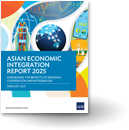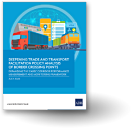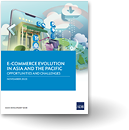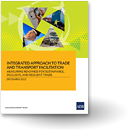Regional Public Goods
ADB Asia Solar Energy Initiative
Solar energy has been regarded as one of the fastest growing electricity technologies in recent years. Changes in technology, cost structure, enabling policies, and regulatory frameworks have driven this spectacular growth in developed countries. Solar energy has great significance for developing member countries (DMCs) in Asia and the Pacific because:
- economies of scale can reduce costs to make solar energy competitive with conventional sources of energy;
- some DMCs have greater solar radiation, more rapidly growing electricity demand, and more availability of land than developed countries;
- and, as a result, DMCs have the potential to become global and regional technology manufacturing hubs for solar technology goods and equipment.
In May 2010, the Asian Development Bank (ADB) announced its Asia Solar Energy Initiative (ASEI) to catalyze generation of about 3,000 megawatts of solar power by 2013. ADB plans to provide $2.25 billion in finance to the initiative, which is expected to leverage an additional $6.75 billion in investments from others over the same period. The ASEI will make available a range of projects, and finance and knowledge sharing mechanisms, so as to attract other development banks, commercial banks, and the private sector to invest in these projects. In addition to direct financing, ASEI will set a target of raising $500 million from donor countries to "buy down" the high up-front capital costs of investing in solar energy, as well as design other innovative ways to attract private-sector investment. ASEI established and hosts the Asia Solar Energy Forum (ASEF), an international knowledge-sharing platform that will track solar development projects, discuss new solar power proposals and incentive mechanisms, and organize major conferences. As of April 2012, the ASEI has held four ASEF meetings, and catalyzed 815 megawatts of solar generation capacity.
News
- ADB, Buskowitz Energy Inc. sign $12 million deal for commercial and industrial rooftop solar in the PhilippinesAsian Development Bank23 Apr 2024
- Thailand: B938m loan secured for solar energy project in CambodiaBangkok Post6 Nov 2021
- Japanese firms in Cambodia biomass and solar power ventureKhmer Times28 Apr 2020
- [Netherlands'] Shell considers solar panels to power Singapore refinery siteChannel News Asia6 Aug 2019
Opinions and Editorials
- Pakistan: The week in focus The Express Tribune27 Jun 2011
- Seeing the lightBusiness Standard16 Jun 2011
Studies and Research
- Thorough Planning of Solar Park Mitigates Risk for Investors, LocalsNaoki Sakai and Amit JainAsian Development Bank1 Feb 2013
- Asia Solar Energy Initiative: Affordable solar power for Asia and the PacificAsian Development Bank1 May 2011
- Asia Solar Energy Initiative: A primerAsian Development Bank1 Apr 2011
Meetings
- 6th Meeting of Asia Solar Energy ForumAsian Development Bank20 Nov 2013
- Fourth Meeting of the Asia Solar Energy ForumAsian Development Bank24 Apr 2012
- Large-Scale Solar Power Development WorkshopAsian Development Bank9 Jun 2011
- Third Meeting of the Asia Solar Energy Forum30 May 2011




